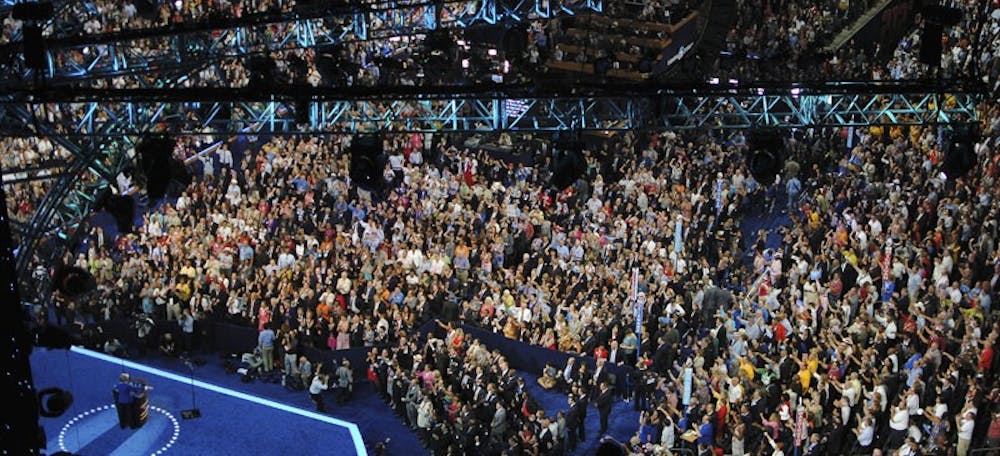Refining a political parties' message is a responsibility shared by all involved in the national convention. While the event's climax culminates with the acceptance speech from the Republican and Democratic nominee, they are not the only politicians in the spotlight during those politically charged days.
"Part of the function of a convention is to help project rising stars in the party," said Chalmers Brumbaugh, professor of political science at Elon University.
Behind the watchful eye of the national media, preliminary speakers occupy the stage throughout the day. Those running for Congress, Senate or state office have a chance to deliver a short speech to gain experience speaking to a national audience, and later use the video for campaign ads during their own elections.
"It raises the profile of the candidate," Brumbaugh said.
Brumbaugh pointed to President Barack Obama to exemplify how an opportunity to speak at a national convention can earn a politician national prominence. Obama delivered the keynote address in 2004 and ran for President of the United States the next election year.
Although Obama spoke as the Senator of Illinois, his audience extended beyond state borders, capturing the attention, and later support, of California resident, Brent Page. For Page, a 43rd congressional district delegate present at the 2012 DNC, Obama's keynote address demonstrated the potential for the nation and its direction under such leadership.
"I was sitting on my dorm room bed (in 2004) watching the opening speech and I was amazed," Page said. "From that moment on, I knew I had to do something because I could see he is going to be somebody."
But while the invitation to speak signals the notability of lower-level politicians in the party, their speeches also support each campaign's themes and promote the platform of the presidential candidate.
The keynote speech from the Mayor of San Antonio, Julian Castro, related to the Democratic Party's message of hope. Castro's account of his family embodied the opportunity available to Americans, according to Page, and the delegate said he felt the same inspiration from Castro as he did from Obama eight years ago.
The preliminary speakers at the DNC advance two prominent themes expressed at the convention, according to Brumbaugh. The revival of the auto industry and the diversity within the Democratic Party characterized the Democratic campaign, he said.
The collection of speakers in Charlotte communicated their message effectively, giving Dorothy Dean, who traveled to Charlotte from Michigan, hope regarding the future of the auto industry.
"When I look back in 2008, Michigan was a state that was hit so hard by the recession we were in, but today that is not longer true," Dean said, explaining her support for the Democratic nominee.
Likewise, the speakers at the Republican National Convention contribute to Republican nominee Mitt Romney's platform and advocate that the Republican Party's platform provides opportunities for those of modest means as well, according to Brumbaugh.
"The delegation may not reflect diversity, but the speakers may," Brumbaugh said of those given a spotlight in Tampa, Fla.


